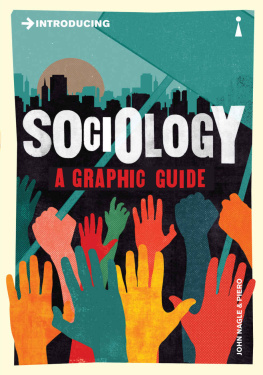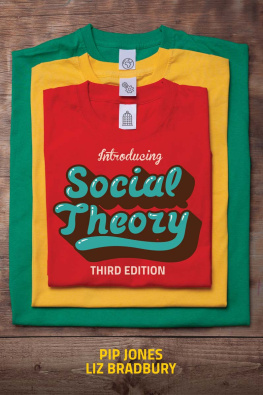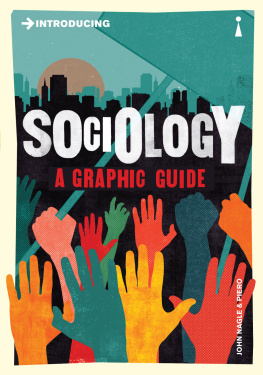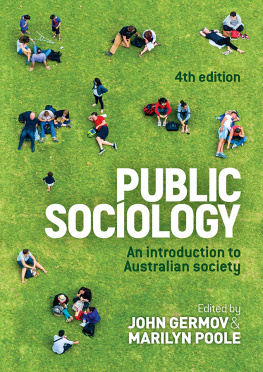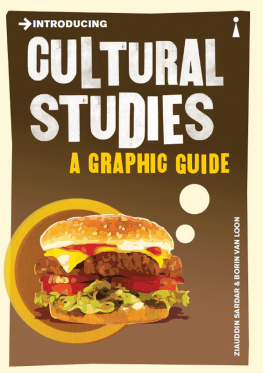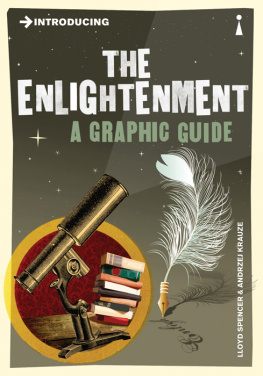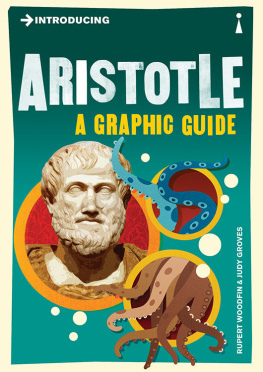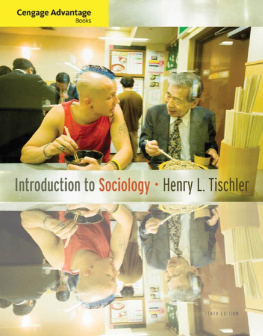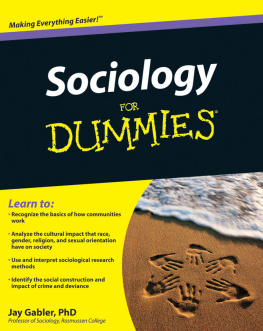Published by Icon Books Ltd, Omnibus Business Centre, 3941 North Road, London N7 9DP
Email:
www.introducingbooks.com
ISBN: 978-178578-074-5
Text copyright 2016 Icon Books Ltd
Illustrations copyright 2016 Icon Books Ltd
The author and illustrator have asserted their moral rights.
Editor: Kiera Jamison
No part of this book may be reproduced in any form, or by any means, without prior permission in writing from the publisher.
Contents
Kung Fu Sociology
In a documentary on the life and work of the leading sociologist Pierre Bourdieu (1930-2002), Bourdieu explains that sociology is a martial art. Bourdieu is not suggesting that learning sociology will automatically qualify the student for a black belt in Kung Fu. Instead, he sees the value of sociology as helping to unmask domination: forms of social inequality based on class, race, gender and much more besides. Despite the existence of domination in our everyday lives, it is often disguised so that we fail to recognize it. For Bourdieu, the role of sociology is to expose the workings of domination throughout our societies.
I OFTEN SAY SOCIOLOGY IS A MARTIAL ART, A MEANS OF SELF-DEFENCE. BASICALLY, YOU USE IT TO DEFEND YOURSELF, WITHOUT HAVING THE RIGHT TO USE IT FOR UNFAIR ATTACKS.
This book is not intended to be some sort of self-help guide or instruction manual that equips the reader with the tools to transform their societies. A rather more modest proposal is suggested. By outlining key sociological thinkers, concepts and ideas, the objective is to familiarize the reader with the rich intellectual heritage of the discipline. Although, if, as Bourdieu supposed, an engagement with sociology is akin to learning a combat sport, reading this book may provide you with some of the training required to build a just and fair society.
THE TASK FOR SOCIOLOGY IS TO COME TO THE HELP OF THE INDIVIDUAL. WE HAVE TO BE IN SERVICE OF FREEDOM.
No Such Thing as Society?
In a 1987 interview, the then UK Prime Minister Margaret Thatcher (1925-2013) famously stated:
THERES NO SUCH THING AS SOCIETY.
A sociologist would both agree and disagree with Thatchers sentiments about society. However much humans appear to exhibit individual behaviour and live in a world of incredible choice, our access to choice is limited by the social groups we are members of. They may agree with Thatcher, however, that society does not exist as an unchanging and fixed set of institutions.
OUR VALUES AND OPPORTUNITIES ARE FORMED BY OUR POSITION WITHIN SOCIETY. SOCIETY IS ALSO THE SUM OF EVERYDAY INTERACTIONS BETWEEN PEOPLE SEEKING TO ATTAIN COMMON AIMS.
What Is Sociology?
Is it possible to provide a simple definition of sociology? This task appears especially difficult when we consider that the discipline of sociology is now over a century old and contains a wide range of theoretical and methodological approaches. One way to consider sociology is as a methodical study of the ways that people are affected by and affect society, and the processes that are associated with groups, societies and institutions.
GOOD SOCIOLOGY IS SOCIOLOGICAL WORK THAT PRODUCES MEANINGFUL DESCRIPTIONS OF ORGANIZATIONS AND EVENTS, VALID EXPLANATIONS OF HOW THEY COME ABOUT AND PERSIST, AND REALISTIC PROPOSALS FOR THEIR IMPROVEMENT OR REMOVAL.
The aim or perspective of sociology is to reveal how social structures create both opportunities and constraints that characterize our lives.
Social structures are those relatively stable relationships between people that are shaped by institutions. Sociology maps out social structures so we can begin to see the social forces that act upon us.
By challenging the myth that human behaviour is purely individualistic or driven by biological impulses, sociology encourages us to understand the social dynamics that turn us into members of society.
THINKING SOCIOLOGICALLY MEANS RECOGNIZING HOW MY SOCIAL GROUPS HAVE A STRONG IMPACT ON MY LIFE CHOICES AND EXPERIENCES.
The Sociological Imagination
Thinking sociologically is what the American sociologist C. Wright Mills (1916-62) termed the sociological imagination. Mills said that when we develop a sociological imagination we begin to see how wider social forces connect with our personal biographies. For Mills, the sociological imagination is particularly powerful when we identify the society we live in, rather any personal or individual failings, as responsible for many of our problems.
MY STRUGGLE TO PAY THE RENT IS CONNECTED TO GOVERNMENT POLICIES ON MINIMUM WAGE AND EMPLOYMENT LAW.
Mills recognized that cultivating the sociological imagination is not easy. It is far too easy to blame laziness for unemployment and fecklessness for poverty. Equally, it is too easy to single out individual intelligence when a student lands a place at a top university. Yet the sociological imagination compels us to see racial, gender and socioeconomic inequalities not as facts of nature but as products of the social world.
WHY SHOULD WE GIVE BENEFITS TO PEOPLE TOO LAZY TO GET A JOB? I GOT TO UNIVERSITY AND GOT A JOB ENTIRELY ON MY OWN STEAM. NO ONE HELPED ME.
KNOW THAT MANY PERSONAL TROUBLES CANNOT BE SOLVED MERELY AS TROUBLES, BUT MUST BE UNDERSTOOD IN TERMS OF PUBLIC ISSUES.
Public Sociology
Nurturing a sociological imagination is the first step towards a public sociology. A public sociology, as the phrase suggests, is concerned with making the public into more engaged citizens. This is a sociology that is not limited to academia it aims to lead public policy. Sociology has an ingrained public purpose. By explaining to us about how society functions, many sociologists, such as Zygmunt Bauman (b.1925), hope that we will seek to change it in some way that makes for a fairer world. By thinking sociologically, we may well see the social context of our lives that has previously been obscured, and learn that we are not simply prisoners of the social structure.

